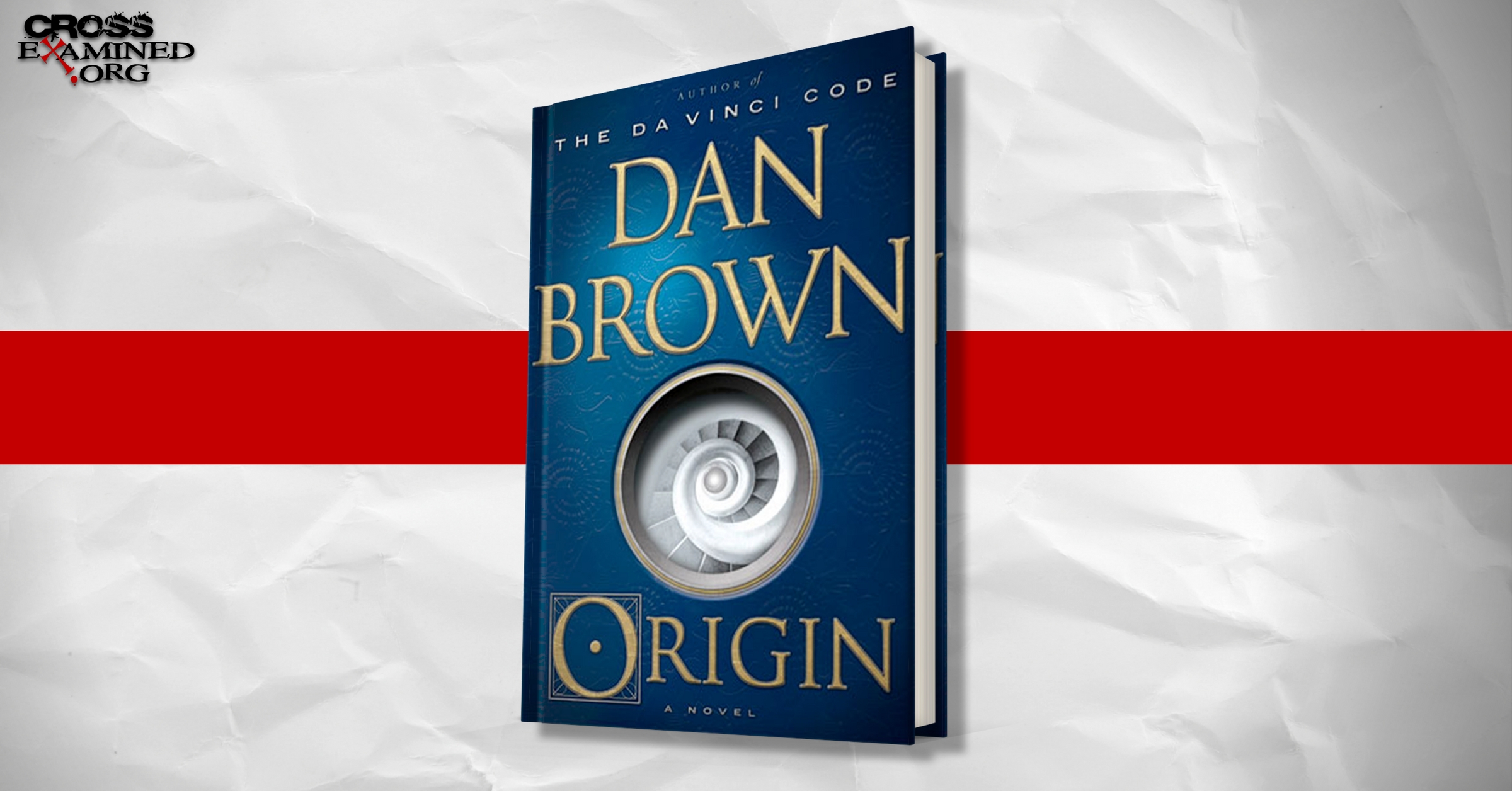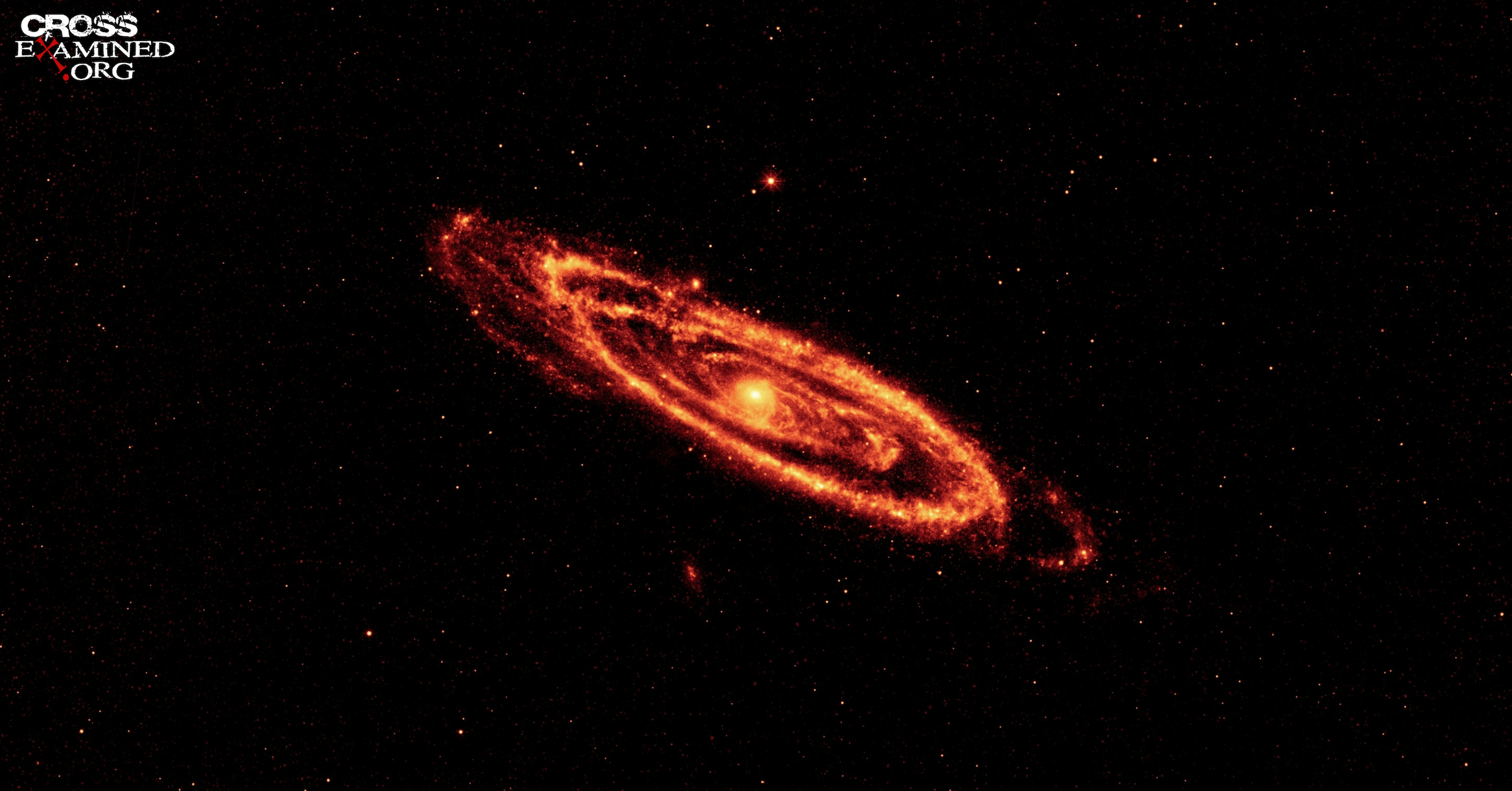In The Origin of Species, Charles Darwin argued that “all the organic beings which have ever lived on this earth have descended from someone primordial form.”1 Darwin suggested that this primordial life form gradually developed into new life forms, which subsequently developed more life forms, eventually producing all the complex life forms we see today.
In short, Darwin asserted that all life descended from a common ancestor. And starting from that original ancestor, he believed nature selected the fittest species which would survive, reproduce, and last for generations. At the same time, nature would sift out the weaker species.
Darwin famously pictured the history of life as a tree. The first life form was the trunk, and all subsequent life forms are the branches. He was certain that the progression of life takes no sudden leaps, but evolves gradually with small-scale variations.
There was one small problem, though. When Darwin proposed his theory, some of the leading paleontologists rejected his theory based on the fossil record. More specifically, they didn’t believe Darwin’s theory could be reconciled with the Cambrian Explosion.
The Cambrian Explosion
The Cambrian Explosion refers to the abrupt appearance of animal life forms in the geological strata without any trace of prior transitional fossils. During this phenomenon, most of the major animal phyla appear in the strata in a geological blink of an eye.
Darwin was aware of the Cambrian Explosion. He noted, “If my theory be true, it is indisputable that before the lowest [Cambrian] stratum was deposited, long periods elapsed, as long as, or probably far longer than, the whole interval from the [Cambrian] age to the present day; and that during these vast, yet quite unknown, periods of time, the world swarmed with living creatures.”2 Meaning, if he’s right, we should find not just a few missing links, but innumerable links preceding the Cambrian era.
After all, Darwin adamantly declared that his theory could take no sudden leaps. He knew that large-scale variations inevitably resulted in deformity or death. Louis Agassiz, the leading paleontologist of Darwin’s day, put it this way: “It is a matter of fact that extreme variations finally degenerate or become sterile; like monstrosities, they die out.”3
Yet these Cambrian animals seemingly came out of nowhere. Of our twenty-seven different phyla — or macro-level animal classifications — at least twenty of them appear in the geological strata suddenly, not gradually as Darwin’s theory demands.4 Hence the name “Cambrian Explosion.”
So how did Darwin respond to this dilemma? He acknowledged, “To the question why we do not find rich fossiliferous deposits belonging to these assumed earliest periods prior to the Cambrian system, I can give no satisfactory answer… The case at present must maintain inexplicable, and may be truly urged as a valid argument against the views here entertained.”5
Darwin, however, was confident that future discoveries would vindicate his theory. Future geological discoveries have since come. Yet these discoveries continue to present fatal objections to his theory.
The Tree Turned Upside Down
Darwin’s tree of life suggests that small-scale differences among species would precede large-scale differences, eventually resulting in different phyla categories altogether. That is to say, as time progressed, and the branches formed, wholesale diversity would result among living species. Phyla categories would only emerge after lower classifications of animals — like species, orders, and families — evolved so much as to warrant macro-level distinctions.
Richard Dawkins put it this way: “What had been distinct species within one genus become, in the fullness of time, distinct genera within one family. Later, families will be found to have diverged to the point where taxonomists prefer to call them orders, then classes, then phyla.”6
Yet, the Cambrian Explosion turns this pattern on its head. Instead of species leading to families, orders, and eventually phyla, the Cambrian Explosion presents phyla first, followed by lower-level diversifications (microevolution).
The Burgess Shale, located along the Canadian Rockies and perhaps the most significant Cambrian dig in North America with more than a hundred thousand fossil discoveries, confirms this upside-down model. Stephen Meyer notes, “the large differences in form between the first animals appeared suddenly in the Burgess Shale, and the appearance of such disparity arose before, not after, the diversification of many representatives of lower taxonomic categories within each higher category, designating a new body plan.”7
Additionally, the Maotianshan Shale of southern China further confirms the upside-down model. Again, this site does not show the gradual emergence of species progressing toward the diversity of phyla. Rather, it shows full-scale diversity of phyla with subsequent diversification among the species.8
The Common Objection By Darwinists
Darwinists typically respond by suggesting that the older, Pre-Cambrian layers could not have preserved the transitional fossils. And they usually suggest one of two reasons. Either the fossils themselves were too small or soft to have fossilized, or the quality of the sedimentary rock was not conducive for preserving fossils.
Neither of these claims, though, holds muster. First, it has been repeatedly demonstrated that older sedimentary rocks have fossilized both small and soft organisms. In several places around the world, Pre-Cambrian rocks have fossilized single-celled algae and other eukaryotes.9 Further discoveries in Western Australia show Pre-Cambrian rocks preserved fossilized bacteria of various kinds.
The Maotianshan Shale also preserved a great variety of Pre-Cambrian soft-bodied organism. Archeologist J. Y. Chen found several animals lacking exoskeletons, including corals, sponges, jellyfish, and worms. Chen and his colleague Paul Chien even discovered sponge embryos.
If the sedimentary rock can preserve soft-celled embryos, surely it could preserve the ancestors of the Cambrian animals. It should also be noted that many paleontologists call into question the claim that the ancestors of these hard-shelled animals would have been soft since the hard parts are necessary to protect their soft parts. In other words, the ancestors of these hard-shelled animals would have required a hard-shell to survive in nature. So, the soft-bodied hypothesis is far from certain. Be that as it may, the data still suggests that soft-bodied animals should have fossilized.
Conclusions From The Cambrian Explosion
Darwinism still dominates the biological landscape. But I believe the Cambrian Explosion gives us reason to pump the breaks.
As I’ve studied the Darwinian model, it seems to me that the strongest argument in favor of it is the similarity of genetic information across all living species. Meaning, the closeness of DNA and RNA suggests we all share a common ancestor. While this could be true, it’s also true that similarities in genes could suggest a common designer. For example, when one purchases a set of pots and pans, they all look similar despite their different sizes and shapes. The similarities of the handles and types of metal demonstrate not that they evolved from a common ancestor but that they share a common designer.
Meaning, the genetic similarities among living species is up for interpretation. It’s speculation at best. But the fossil record — especially the Cambrian Explosion — presents us with hard data that is difficult to square with Darwinism. Instead of slow, gradual variations, we see sudden leaps of full-bodied animals without any trace of transitional fossils below.
Darwin knew the Cambrian Explosion didn’t support his theory. But he hoped that future geological discoveries would vindicate him. The Burgess and Maotianshan Shale discoveries, however, create an even larger problem than he realized. For these reasons, I believe we have good grounds to doubt Darwinian evolution.
Recommended resources related to the topic:
Science Doesn’t Say Anything, Scientists Do by Dr. Frank Turek (DVD, Mp3, and Mp4)
Oh, Why Didn’t I Say That? Does Science Disprove God? by Dr. Frank Turek (DVD and Mp4)
Stealing From God by Dr. Frank Turek (Book)
Defending Creation vs. Evolution (mp3) by Richard Howe
Exposing Naturalistic Presuppositions of Evolution (mp3) by Phillip Johnson
Macro Evolution? I Don’t Have Enough Faith to be a Darwinist (DVD Set) (MP3 Set) and (mp4 Download Set) by Dr. Frank Turek.
Darwin’s Dilemma (DVD) by Stephen Meyer and others
Inroad into the Scientific Academic Community (mp3) by Phillip Johnson
Public Schools / Intelligent Design (mp3) by Francis Beckwith
Answering Stephen Hawking & Other Atheists MP3 and DVD by Dr. Frank Turek
Ryan Leasure holds a Master of Arts from Furman University and a Masters of Divinity from the Southern Baptist Theological Seminary. Currently, he’s a Doctor of Ministry candidate at the Southern Baptist Theological Seminary. He also serves as a pastor at Grace Bible Church in Moore, SC.
Original Blog Source: https://bit.ly/2WtntOz



